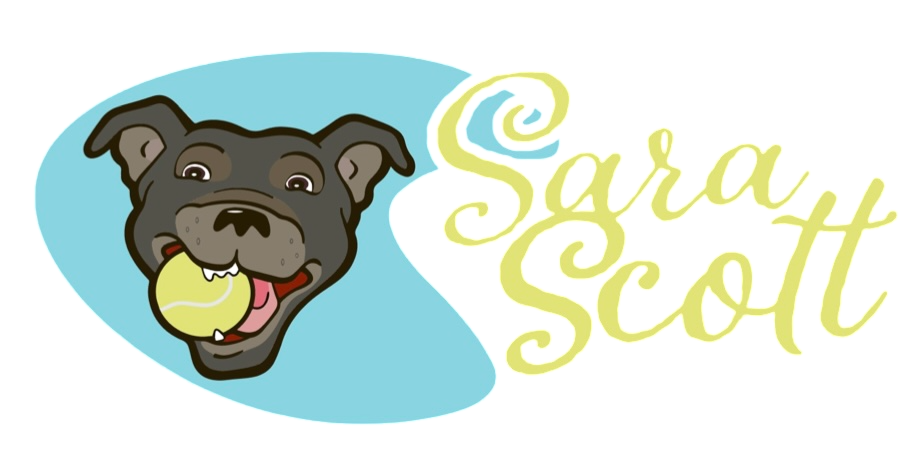Redefining Progress: Why Your Dog’s Journey Is Their Own
- Sara Scott

- 2 hours ago
- 3 min read
When we think about dog training progress, it's easy to imagine a straight, upward path—like mastering new skills one after the other. But real progress, especially with dogs who have experienced trauma or have unique challenges, rarely looks like that.
This spring, as I reflected on my own dog's journey, I was reminded just how important it is to measure success based on where each individual dog starts—not against some imagined ideal.
Fernando’s Story: More Than Just Anxiety
When Fernando first arrived, he was an emaciated, anxious stray who had clearly survived a difficult and likely abusive past. Over the past year and a half, I’ve watched him blossom into a dog who finally feels safe. His anxiety, once overwhelming, has settled into what I’d call a normal level—something manageable, not a disorder.
But as that anxiety faded, something else became clear: it had been masking deeper, lasting challenges.
Many of Fernando’s quirks aren’t just behavioral—they're neurological. While the only way to truly confirm the full extent of his neurological issues would be through advanced imaging like an MRI, that's not something that would meaningfully improve life for Fernando or me. Instead, I’ve focused on careful observation and understanding so I can better meet his needs.
Here’s what I’ve come to recognize:
Sensory Deficits
Ocular nerve damage caused by blunt force trauma, leading to muscle atrophy, poor vision, and serious depth perception issues.
Possible hearing deficits or auditory processing issues, especially on his left side—resulting in moments where he responds to being called but runs in the wrong direction.
Motor & Spatial Challenges
Proprioceptive dysfunction (poor body awareness), seen in frequent collisions, difficulty navigating tight spaces, and a lack of spatial awareness (like accidentally laying on top of smaller dogs).
Cautiousness with novel environments, particularly around heights or unfamiliar surfaces, likely linked to poor depth perception and sensory confusion.
Arousal Regulation & Social Processing
Arousal control issues, where short bursts of excitement escalate into uncontrolled zoomies, sometimes causing him to crash into objects, people or other dogs.
Social clumsiness, including difficulty navigating personal space with dogs and humans, likely shaped by both neurological factors and lack of proper early socialization.
Trauma & Developmental Impact
History of trauma-induced neurological impairment, rooted in abuse, malnutrition, and survival as a stray—leading to long-term cognitive, sensory, and motor challenges.
Rethinking Success: Progress Is Personal
Fernando’s journey has reminded me that real success isn’t about fixing every issue or striving for perfection. It’s about recognizing where your dog starts from—and celebrating how far they come on their own timeline.
We often fall into the trap of comparing our dogs to others—measuring a reactive dog against the social butterfly at the park, or expecting a fearful dog to behave like one who’s never known trauma. But comparison is the thief of meaningful progress.
When we accept our dogs’ individual realities instead of fighting them, we create more space for true growth—the kind that matters to the dog in front of us.
My Challenge to You: Redefine Progress for Your Dog
Take a moment to redefine what progress looks like for your dog, based on their unique starting point. Ask yourself:
What specific strengths and challenges does my dog have that might affect how they learn? List them out thoughtfully. Knowing your dog’s natural tendencies helps you build realistic, compassionate goals.
What improvements, even small ones, have I noticed that deserve celebration?Reflect on subtle wins—like faster recovery after a startling event, calmer walks, or more willingness to engage.
How can I create goals and expectations that honor where my dog started from?Focus on growth from their baseline, not someone else’s standard. Tailor goals to fit their reality, not an idealized version of what a "good dog" should be.
Celebrate Your Dog’s Unique Victories
I'd love to hear about your dog’s non-traditional victories—those moments of progress that might seem small to others but represent real breakthroughs for your unique dog.
Leave a comment or get in touch to share your story!
And if you’re looking for help creating a training plan that truly honors your dog’s individuality, I offer both one-time consultations and ongoing coaching through my Dog Lab program. ➡️ Learn more about behavior coaching here.




Comments